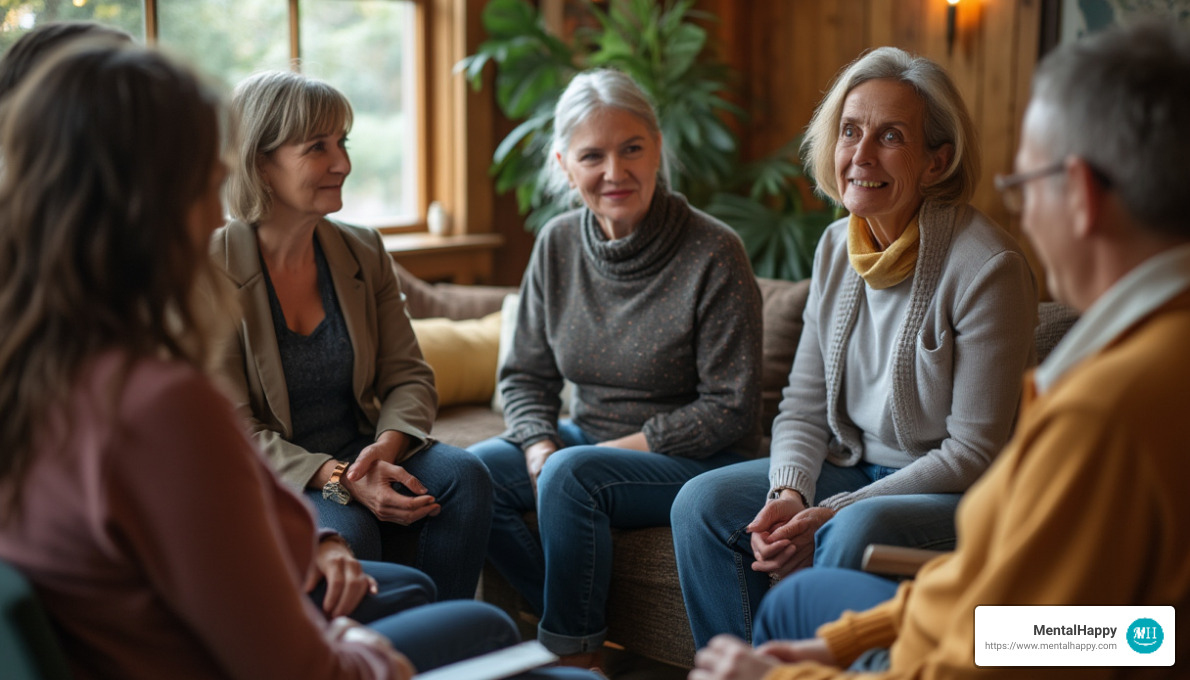Group therapy brings individuals facing similar challenges together in a structured, supportive setting led by a trained mental health professional. Fostering connection and mutual encouragement, group sessions help participants combat feelings of isolation while building coping skills. Understanding the role of group therapy highlights how this collaborative approach can promote emotional healing, personal growth, and a sense of community.
How Does Group Therapy Work?
Group therapy, or group counseling, is a form of treatment in which a small group of people meets with a therapist. These group sessions usually include 5 to 8 people who face similar challenges. The therapist guides conversations and activities that help everyone learn and grow together.
Group counseling sessions often last 75 to 90 minutes and happen once a week. Members stay in the same group throughout the treatment period, which helps build trust and stronger connections. The therapist makes sure everyone feels safe and comfortable sharing their thoughts and feelings.
During these sessions, people can talk about their experiences and learn from each other. They also practice new skills and strategies for dealing with their problems. Group members can also give each other support and encouragement, which helps everyone feel better about themselves.
How Does It Reduce Isolation?
Group therapy fights loneliness in several key ways. When people join a group, they quickly realize that others have similar struggles and feelings. This discovery helps reduce the shame and loneliness that often accompany mental health challenges.
Sharing experiences with others creates a sense of belonging. Group members can build friendships and feel like they’re part of a community that truly understands them. They learn that their thoughts and feelings are normal and that many people face similar difficulties.
The group setting can also help people develop better social skills. Members practice discussing challenging topics and learn how to support one another. These skills can help them build stronger relationships outside of therapy. Group sessions offer a safe space to explore new ways of connecting with others.
Is Group Counseling Right for You?
Before opting for group sessions, think about whether you feel comfortable sharing personal information with others. Group counseling requires a willingness to share your experiences and listen to other people’s stories. People who benefit most from group therapy are those who want to connect with others and learn new ways of coping. If you feel isolated or think no one understands your problems, group sessions may be helpful.
Some people worry about privacy in group settings. All group members agree to keep what they hear confidential. The therapist makes sure everyone follows this rule and feels safe in the group. Most people find that the benefits of connection and support outweigh their initial concerns about privacy. Group counseling works especially well in conjunction with individual therapy. The group can provide community support, while individual sessions offer personalized attention to specific problems.
Schedule Your Group Therapy Session Today
Group therapy provides a means to overcome isolation and foster meaningful connections with others. Through shared experiences and mutual support, group members discover they are not alone in their struggles. They can develop better social skills, learn new coping strategies, and build lasting friendships. Contact a mental health professional near you today to explore group counseling options available in your area.









Leave a Reply